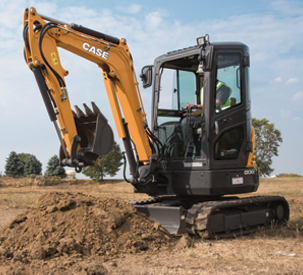Heavy Equipment Storage Tips
If you need to store your equipment for a few months or longer, there are several important steps you need to take in order to prevent damage and deterioration. Failure to take the right measures could result in costly repairs and service when you take your machine out of storage to use again.
Always clean your equipment
One of the most important parts of equipment storage is to prepare your machines beforehand. You won't want to take equipment out of storage and have it covered in dirt and grime from the previous season. Give both the inside and outside of your machine a good clean. Wash debris from moving parts, then add lubricant to them, so your equipment is greased and ready to go when you need to use it again. Consult your owner's manual for more specific instructions on lubricating your equipment's moving parts.
Top off your tanks
Fill up your fuel and oil tanks in order to help avoid the buildup of condensation. Moisture forming in your tanks can lead to costly problems later. We also recommend adding fuel stabilizer to your fuel tank, so the fuel doesn't degrade over the time it's in storage.
Inspect your tires
Before storing your heavy equipment, it's important to check the tires for signs of damage or leaks. Look at your owner's manual for the right tire pressure, but we recommend slightly overinflating your tires during storage to prevent flat spots from forming. If a machine is sitting on concrete for a prolonged period of time, then flat spots can lead to tire damage.
Complete repairs before equipment storage
You always want to have any repairs or maintenance completed before you put a machine into storage. The reason is that minor issues can become worse and turn into serious problems if a piece of equipment sits for several months. By completing service prior to storage, you can prevent costly repairs when you take out the equipment to start using again.
Get your storage area ready
One of the most important parts of equipment storage is the facility where you are leaving it. You have to store machines in a fully enclosed structure like a garage, barn, or warehouse. The area should be dry, insulated, clean, and free of any animals or pests. Even when storing equipment indoors, we recommend covering it with a high quality tarp to prevent moisture from building up and causing rust.
Secure equipment to prevent theft
To avoid theft when storing equipment, always lock your machine and your storage area. Plus, invest in theft prevention devices like cameras, alarms, and telematics systems.

